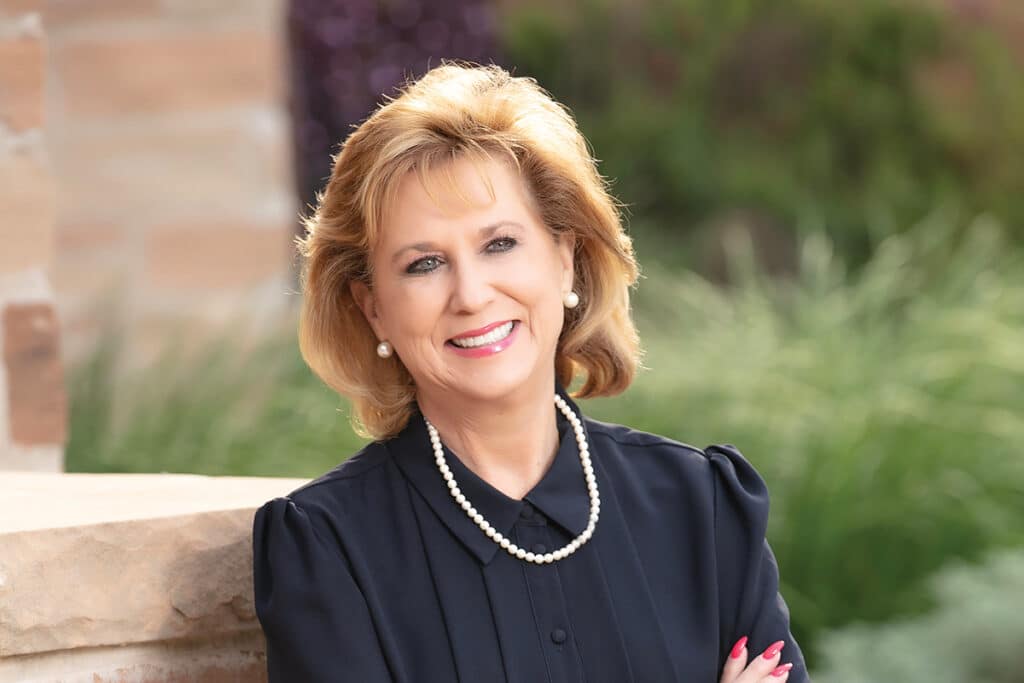What’s been described as the graying of America — the country’s growing senior population — has another color to it: green. The industry dedicated to caring for that aging population is growing as well, creating job opportunities for those interested in elder care.
To put the need in perspective, the American Health Care Association estimates that America’s senior population will hit 88 million people in 2050, up from 48 million today. That population needs assistance managing chronic health conditions and disabilities. To meet the need, the Bureau of Labor Statistics estimates that an additional 1.1 million elder care workers will be needed by 2024.
In San Antonio, opportunities in the elder care field are bountiful—as are job applicants. But not everyone is the right fit. “It is not difficult to find bodies, but it is difficult to get workers who are passionate about what they are doing,” explains Cary Larsen, director of corporate operations for Franklin Companies, an affiliate of Franklin Park. Franklin Park employs more than 300 people across six different residences in San Antonio that offer independent living, assisted living and memory care for seniors.
“There is a difference with someone providing caregiving for a paycheck compared to the individual who is happy and fulfilled with providing a service. The task is to find the right person the first time,” says Larsen.
That sentiment is echoed by Andreen McDonald, the owner/manager of Starlight Homes Assisted Living, with two resident facilities in San Antonio. “Most people do not possess the patience to do this job. You have to be patient, nurturing and willing to provide care to people who need it,” she explains. “We’re all going to grow older. If we could put ourselves in their shoes, see things as they do in their situation — that empathy is key to getting people to join the industry.”
In addition to empathy, the only qualifications for working in the elder care industry are those imposed by the companies who are hiring. Some of the available jobs may be surprising, as resident facilities are often little cities providing everything the residents need. From providing resident care and assistance with personal care needs to housekeeping, receptionist, wait staff, concierge and life enrichment positions, the industry offers an array of opportunities. Larger facilities may offer medical and dietary positions, while smaller facilities may feature jobs with far-reaching responsibilities for resident care.
The qualifications for each position vary, however, and most elder care companies require applicants to have a high school diploma or GED. Some positions require professional certifications, such as Certified Nursing Assistant or Certified Medical Assistant. However, many opportunities include on-the-job training and continuing education to ensure that both staff and the facilities meet all state licensing requirements.
“We actually provide more training and conditioning education than is required,” notes McDonald. “We work to make sure our staff more than meets our residents’ needs.”
So who makes an ideal candidate? “One who helps people without being asked. We use a group interview process to quickly find this attribute. We will bring several candidates into a group setting, and two of our managers will come into a disheveled room and make the comment to each other that they need to straighten up before the meeting starts. Then, we watch to see which of the candidates take it upon themselves to help move things around. If they reach out to help without being asked, they are usually good workers,” explains Larsen.
McDonald personally interviews every applicant and looks for people who understand caregiving. “They may not have worked in an assisted living facility before, but they may have cared for a family member. I want to know that they are willing to care for others,” says McDonald. She also looks for people who will enjoy the job. “If you’re not happy, you can’t do this job. Our residents know—they can tell. We don’t want negative energy around them.”
Franklin Park has had success finding the right staff by communicating effectively with the workforce to help them understand what the job is. Their website also features photos and videos of employees describing what their typical day is like to give job applicants a glimpse of what working at Franklin Park can be. “Let’s put the caregivers first and then build our program around them. Our job is to elevate the role in the minds of the staff, family and residents to such a status that even though they are a caregiver, dietary aide or a housekeeper, they can be the best caregiver, housekeeper and aide,” explains Larsen.
Both Larsen and McDonald agree that there’s no set description for who should consider joining the elder care industry. “This job is for anyone who wants to help others and to be in a position to make a change in the resident’s life,” notes Larsen.
“Elder care is a lifestyle and is a fit for those who are willing to make their lifestyle about caring for others. It takes a special type of person to care for a complete stranger. Of course, over time, you build bonds, and the residents become family to you,” explains McDonald. “You have to love it, so be honest with yourself. Do a self-assessment: Is this really what I want to do?”
To help gain insight into elder care, interested candidates can volunteer at facilities and help with resident activities. There are also industry groups, such as San Antonio Seniors’ Guide, that hold networking events and activities that provide a better glimpse of what working in elder care entails.
Larsen offers an honest assessment of what it means to join the industry: “It is a hard job and one that does not get much visibility. It can be mentally and physically challenging. But if you want some of the best ‘feel good’ moments about what you can do for a resident or family member, then this is a role for you. Staff who are the happiest in this industry typically have a passion and desire to make a contribution to the lives of others.”
By Dawn Robinette





